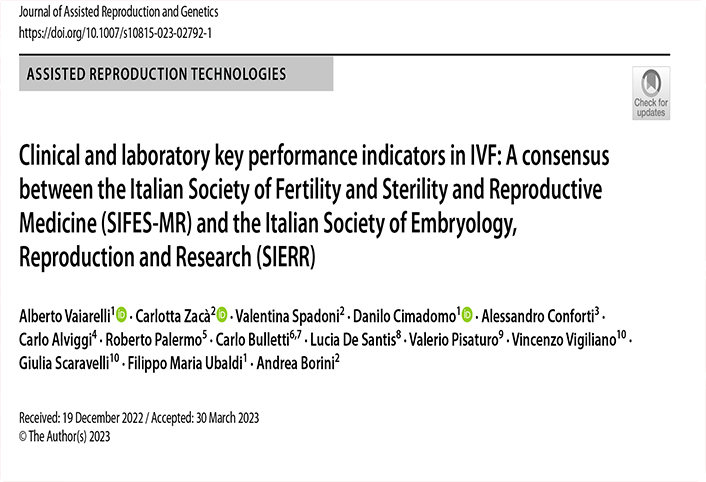
Alberto Vaiarelli, Carlotta Zacà, Valentina Spadoni, Danilo Cimadomo, Alessandro Conforti, Carlo Alviggi, Roberto Palermo, Carlo Bulletti, Lucia De Santis, Valerio Pisaturo, Vincenzo Vigiliano, Giulia Scaravelli, Filippo Maria Ubaldi, Andrea Borini
Journal of Assisted Reproduction and Genetics https://doi.org/10.1007/s10815-023-02792-1 – Received: 19 December 2022 / Accepted: 30 March 2023 – Published:
Abstract
Purpose Infertility is increasing worldwide, and many couples seek IVF. Clinical management and laboratory work are fundamental in the IVF journey. Therefore, the definition of reliable key performance indicators (KPIs) based on clinical and laboratory parameters, is essential for internal quality control (IQC). Laboratory performance indicators have been identified and a first attempt to also determine clinical ones has been recently published. However, more detailed indicators are required.
Methods An Italian group of experts in Reproductive Medicine from both public and private clinics on behalf of SIFES-MR and SIERR was established to define IVF indicators to monitor clinical performance.
Results The working group built a consensus on a list of KPIs, performance indicators (PIs) and recommendation indicators (RIs). When deemed necessary, the reference population was stratified by woman age, response to ovarian stimulation and adoption of preimplantation genetic testing for aneuploidies (PGT-A). Each indicator was scored with a value from 1 to 5 and a weighted average formula – considering all the suggested parameters—was defined. This formula generates a center performance score, indicating low, average, good, or excellent performance.
Conclusion This study is intended to provide KPIs, PIs and RIs that encompass several essential aspects of a modern IVF clinic, including quality control and constant monitoring of clinical and embryological features. These indicators could be used to assess the quality of each center with the aim of improving efficacy and efficiency in IVF.
